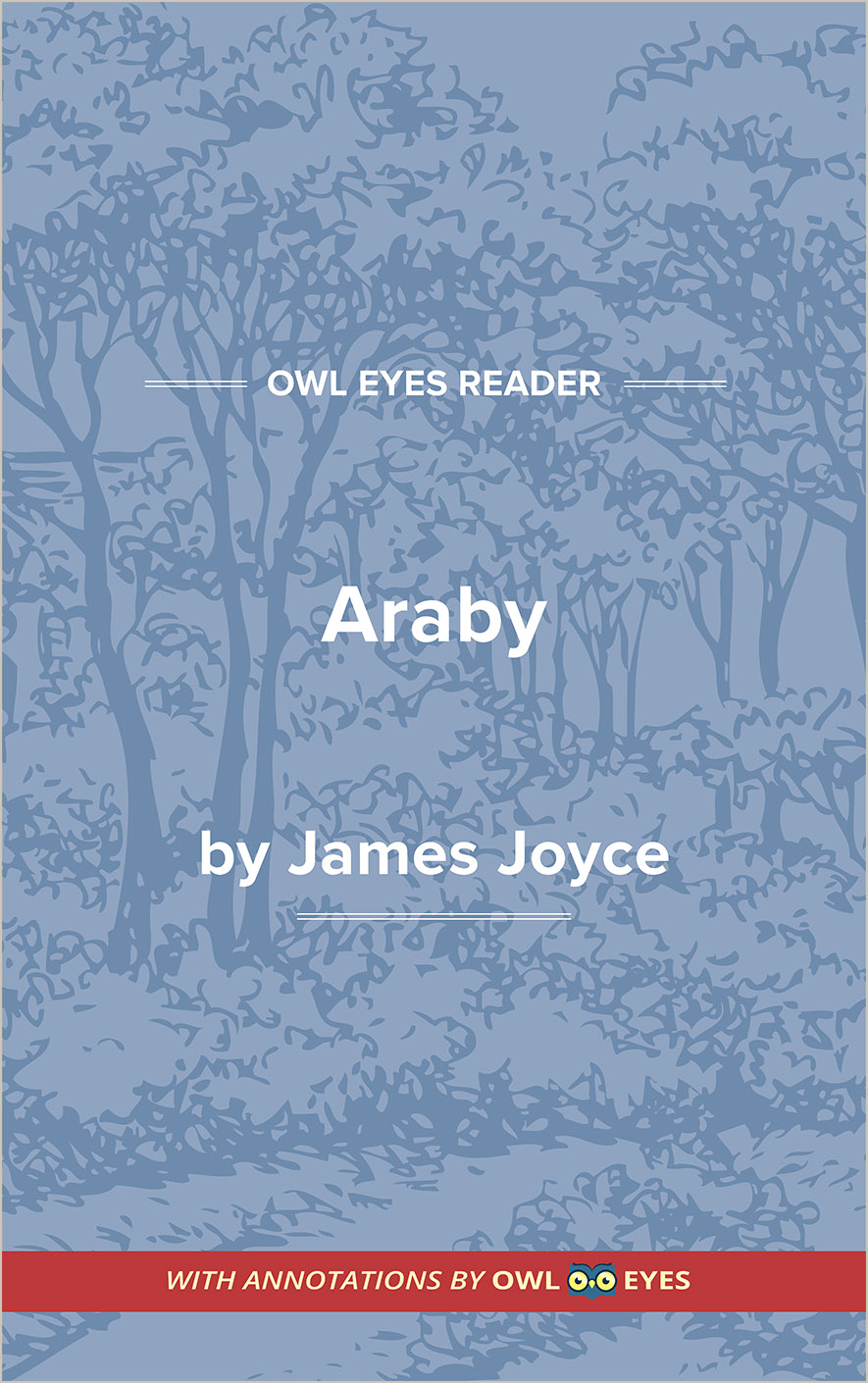Analysis Pages
Tone in Araby
Joyce includes many words and phrases that help give “Araby” an at-times gloomy, at-times naively hopeful tone. The prevalence of the color brown, the condition of the garden, and the contrast between the glowing youth and the dark streets help to illustrate this.
Tone Examples in Araby:
Araby
🔒"Westland Row Station..." See in text (Araby)
"like fingers running upon the wires..." See in text (Araby)
"we played till our bodies glowed..." See in text (Araby)
"had grown sombre..." See in text (Araby)
"musty..." See in text (Araby)
"brown..." See in text (Araby)

